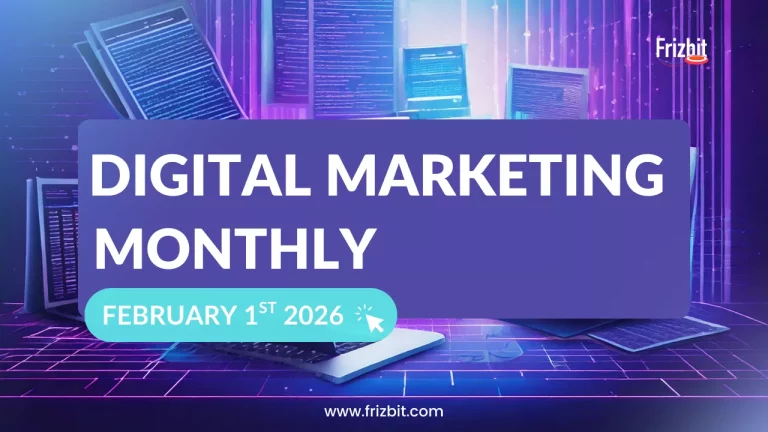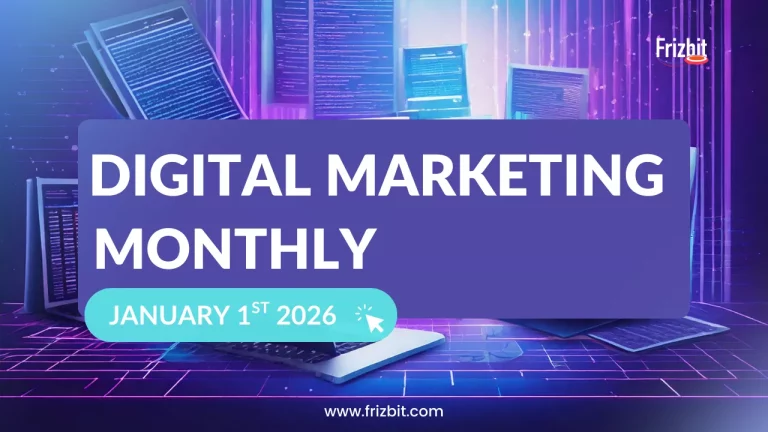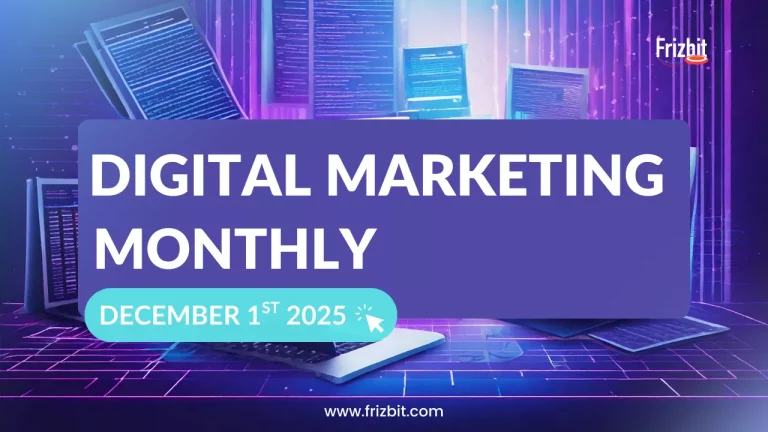‘Cookieless’ strategies for eCommerce and CMOs
On the 10th of May, we organised our very first on-site meetup of this year after a long 2-year covid-break. At this conference co-organised by Jevnet, Áticco Workspaces and Frizbit, we covered key ‘Cookieless’ strategies that eCommerce managers and CMOs should adopt to cope with the upcoming restriction of third party cookies, which will take place by the end of 2023.
The roundtable was composed of compelling digital marketing experts such as Oriol Cortejà, the head of SEM; Josep L. Dorsé, the senior BDM of Jevnet and our co-founder and CEO, Ata Gür.
“How we adapt to this new reality will determine the success of businesses in terms of business and sales. For those able to adopt new strategies, their results will improve in comparison to the eCommerce who are reticent” -Josep L. Dorsé.
With this quote, we dive into the main challenge and impact most digital businesses will face with these new changes regarding the privacy data of users. It is no secret that the way we develop digital marketing campaigns will need to change soon, and the faster we adapt, the easier it will be.
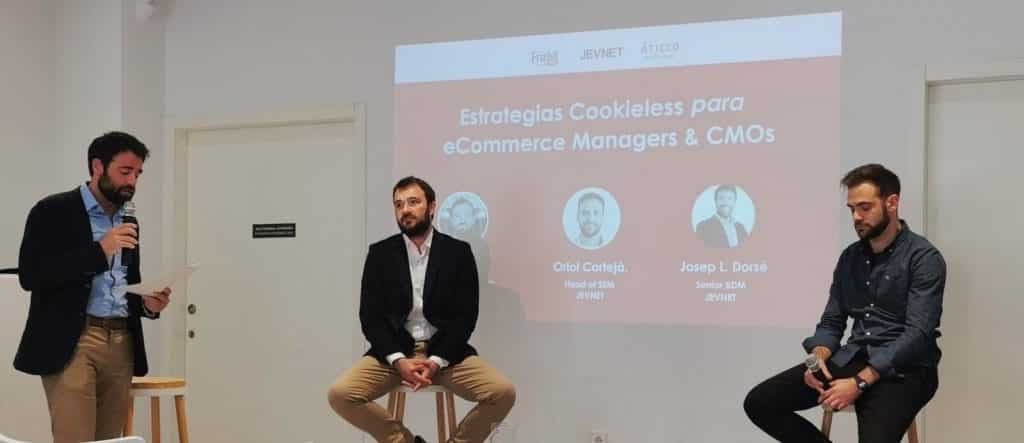
The moderator, Josep L. Dorsè and the panellists Ata Gür and Oriel Costejà
The roundtable aimed to provide the audience with the leading strategies and alternatives and explain the impact of this new regulation on digital businesses.
Next, we will be discussing the main takeaways of this lively event.
What does the cookieless future mean for marketers?
The digital marketing industry is quite dynamic and in constant change. We have been exposed to different challenges in the past. However, our teams and strategies have been the key assets to help us overcome the obstacles. And in this case, it shouldn’t be any different.
From the point of view of a user, it is true that the privacy boundaries in the digital ecosystem have been crossing off-limits in recent years. As an ecosystem and as marketers, we should aim to create dynamics that reduce any potential threat to our users.
The cookieless future means for marketers that we will have to adapt and modify our existing strategies in the best interest of the users. Luckily for us, in the same way that the industry evolves, so do our tools to get closer to the users in the digital space, such as the first-party data cookies.
How will the new restriction affect the digital marketing industry dynamics?
There are three trends that are shaping the behaviour of the industry.
- Privacy of Users: The expectations of users about privacy and transparency directly impact how we gather and collect data.
- Platform & Tech Changes: All browsers are restricting the usage of mainly 3rd party cookies.
- Regulation: Restrictions are more rigorous on the use of personal data, which ultimately results in implementing additional requirements in the way users give their consent.
Impact in the short and medium-term.
The consequences this will bring to the digital marketing ecosystem gravitate towards two main aspects:
- How brands can reach and measure new audiences to connect with them.
- How publishers will be able to monetise their content through paid ads.
Having said that, the restriction of third party data cookies will immediately result in:
- The inability of digital businesses to track demographic information, customer behaviour or interests of their users.
- The change in how we collect historical data (Welcome GA4)
- Difficulty in tracking the customer journey.
- As a direct result of the previous statements, companies will no longer be able to run personalised
retargeting ads and effectively measuring their marketing efforts. - The loss of conversions and the decrease in the reach ratio.
And how does this look in the long term?
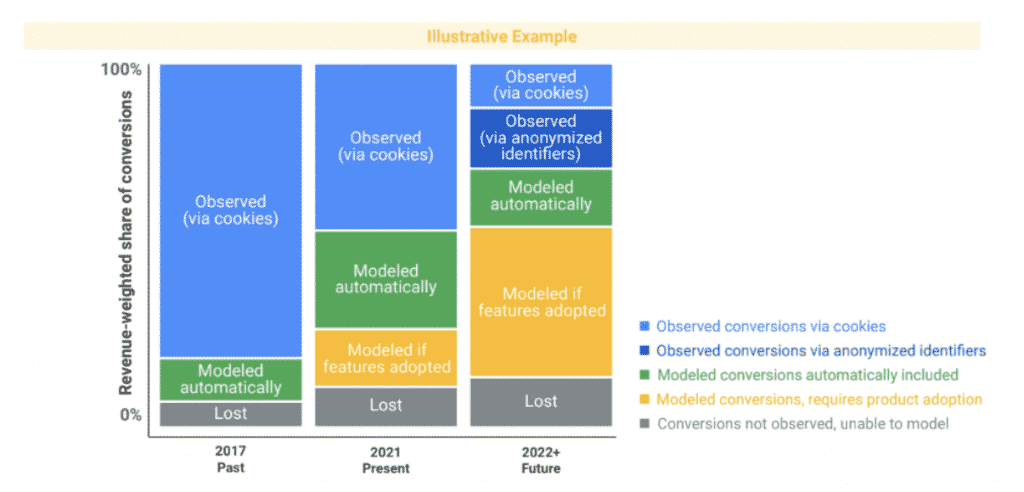
Source: Digital Marketing Transformation Presentation by Google
We have been undergoing a tendency in which users are more concerned with their privacy and the way their data is being handled. As it can be seen on the graph above, moving towards the cookieless future, there is a clear trend in which the usage of cookies to create conversions will keep decreasing over time.
On the other hand, an apparent change is happening aligned to the preference of users and shifts within the industry. The modelled conversion model is a clear example of how digital businesses will benefit from adapting cookieless strategies. The trend shows a clear increase in the revenue ratio thanks to its features combining first-party data with machine learning algorithms.
Alternatives and tactics for implementing first-party data strategies.
Now that we understand the impact and direct consequences for businesses, a question to be asked is: How can I manage to have a competitive business while still enduring the cookieless restrictions?
Generally speaking, marketers and advertisers will need to modify their actions under two principles:
- Transparency profiling:
Independent of the platform used, being transparent and informing the user about what information is being collected will play a vital role in the navigation of users.
- Reporting:
Report all the digital assets and the information gathered from campaigns to enrich audiences.
As mentioned before, every major shift also comes with an opportunity for evolution and growth. We will introduce you to 4 alternatives to third-party cookies that will help you thrive with success in your future marketing campaigns:
-
Meta Business:
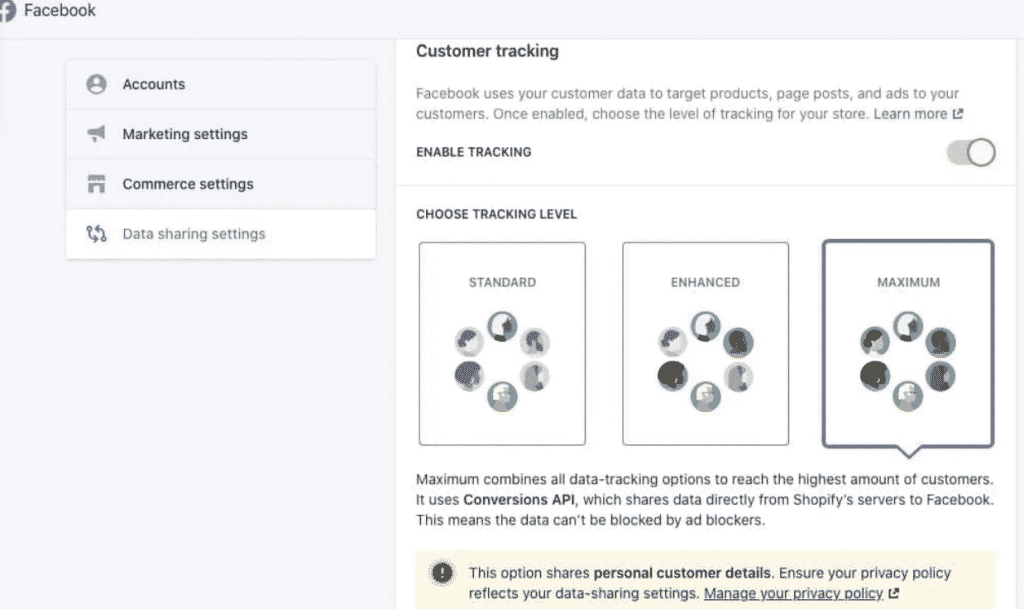
Example of Conversions API sharing data directly from Shopify to Facebook.
Source: Rui Zhi Dong
The platform will still be an option for running advertising campaigns. However, they will operate under their own Conversions API to remain up to date with the new cookieless restrictions. It works by directly sharing with Facebook the data gathered from an eCommerce platform to reach the highest results. This alternative is excellent if you are familiar with the previous Pixel usage. This method will allow advertisers to develop successful campaigns, track conversions and make adjustments in the Ads manager when needed. -
Consent Mode:
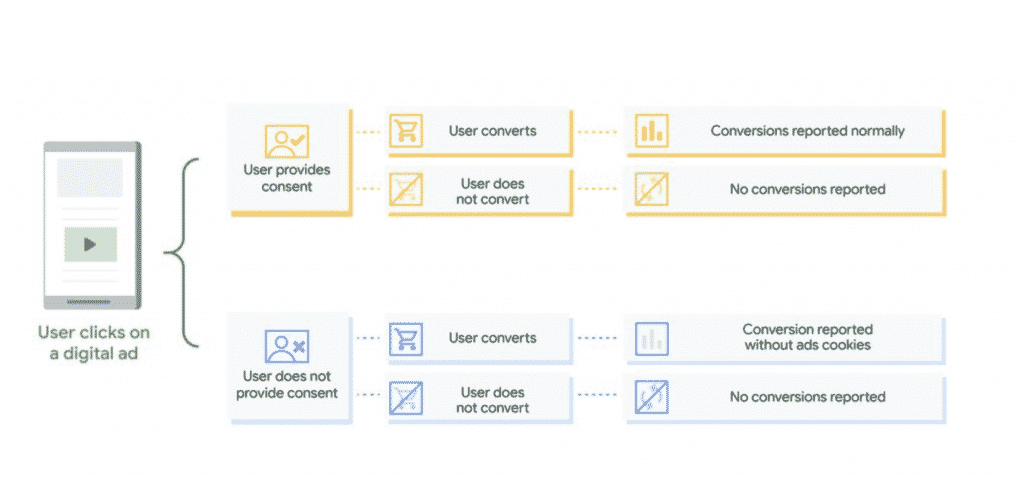
How Consent Mode works by Google
It is an API compatible with Google Ads, Floodlight and Google Analytics, developed by Google. This feature aims to improve metrics and data reporting, modelling, and accuracy. It works using two new tag settings that will help to control ads and analytics cookie storage based on user consent status.
For this feature to work under the cookieless restrictions, the user needs to enable the consent mode first. Once it is on, it informs the new Google tags that permission has been granted to use first-party cookies for ads and analytics.
With these changes, and combined with the modelling conversion, Google is confident that they will be able to have a significant impact on digital businesses by providing users with more precise data. -
GA4 / Google Analytics 4:
 Google Analytics 4 – Sample Demographic Report
Google Analytics 4 – Sample Demographic Report
Source: Google
Migrating to Google Analytics 4 as soon as possible is essential for any online business that strives to build strategies based on historical customer data.
In addition, by migrating to this analytics platform, website owners will be able to better understand the true customer journey in a cross-platform setting.
Within its benefits, the platform announces to provide intelligent business predictions and behavioural algorithm data to drive impact for companies. GA4 announces businesses will be able to scale through accurate data.
4. Web Push Notifications Retargeting:

Example of Web Push notifications by Frizbit
Following the cookieless trend, web push notifications are the only and latest available method to perform dynamic retargeting. It is simply a push notification sent through browsers on both mobile and desktop devices. This is becoming the only tool for running retargeting campaigns using first-party data.
It is a tool aligned to the new preferences of users. All that is needed for an eCommerce to send hyper-personalised push notifications in real-time is that the visitor opts-.in to push notifications from the website.
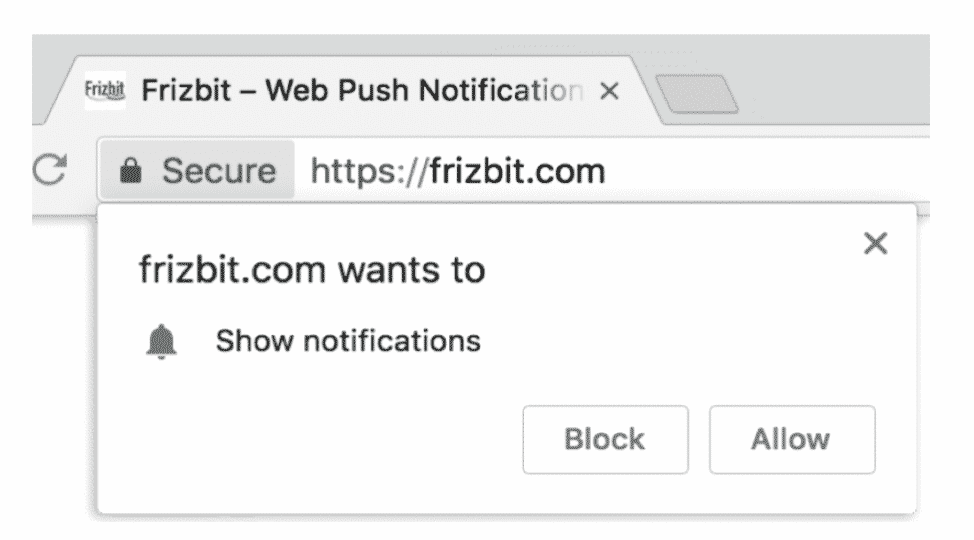
Web Push notifications opt-in process by Frizbit
With this channel, it’s possible to retarget users through every step of their shopping journey while respecting the privacy and data of users and also being competitive in the digital ecosystem.
We can conclude that collecting data from visitors and providing personalised experiences will represent a complex challenge. However, at Frizbit, we believe that adapting to the new strategies as early as possible will bring positive results to any business in the long term.
Lastly, we would like to thank everyone who took part in this experience and made it possible for the event to be quite insightful for everyone attending. Special thanks to our co-organisers Jevnet and Áticco Working Spaces for their collaboration and continuous support.
If you missed the event and want to catch up with the latest digital marketing strategies and tools using first-party data, the replay of the session is available here.
We hope to see you around next time!
